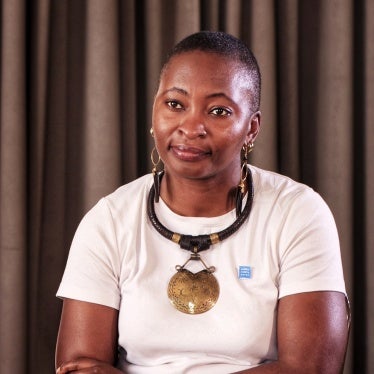Malawi’s Constitutional Court on June 28 rejected a legal challenge to the penal code that makes same-sex conduct a criminal offense. The decision contradicts fundamental rights, including the rights to equality and nondiscrimination of lesbian, gay, bisexual, and transgender (LGBT) people, protected under international human rights law.
The three-member judicial panel dismissed an application from Jan Willen Akster, a Dutch citizen, and Jana Gonani, a trans woman and sex worker, challenging the constitutionality of Penal Code sections 153, 154, and 156. These sections criminalize anyone who has “carnal knowledge” of any person “against the order of nature,” attempts to commit an “unnatural offence” or undertakes “indecent practices.” These provisions are vague and overly broad, facilitating anti-LGBT discrimination, and can result in sentences of up to 14 years’ imprisonment.
Both applicants face criminal prosecutions before lower courts: Akster was accused of abusing children, and Gonani was charged with “false pretense” for presenting herself as a woman. Gonani received an eight-year sentence at a men’s prison in December 2021, while proceedings against Akster continue. They each filed appeals with the High Court in 2022 and 2023 to challenge the constitutionality of the prohibitions against same-sex sexual conduct, which the chief justice combined into one case.
Many faith-based groups filed legal briefs and organized demonstrations against LGBT rights during the hearings. The case also sparked a national debate on same-sex marriage. Religious leaders led protests contending that the court proceedings aimed to legalize same-sex marriage in Malawi.
The court dismissed all the arguments that were raised, maintaining that it was parliament’s responsibility to review and amend laws.
“It was a dark day for the whole community,” an LGBT rights activist told Human Rights Watch. “We are afraid more than ever.”
The court’s decision exacerbates risks of arbitrary arrests and prosecutions, physical violence, and discrimination against LGBT people in Malawi, as Human Rights Watch has long documented. There is further risk that LGBT people will be excluded from access to health care, justice, and security.
With the case’s dismissal, the power to guarantee LGBT rights now lies with parliament. Parliament should uphold Malawi’s international human rights obligations by urgently reviewing and amending the Penal Code to end anti-LGBT discrimination and protect everyone’s right to safety, privacy and dignity.









